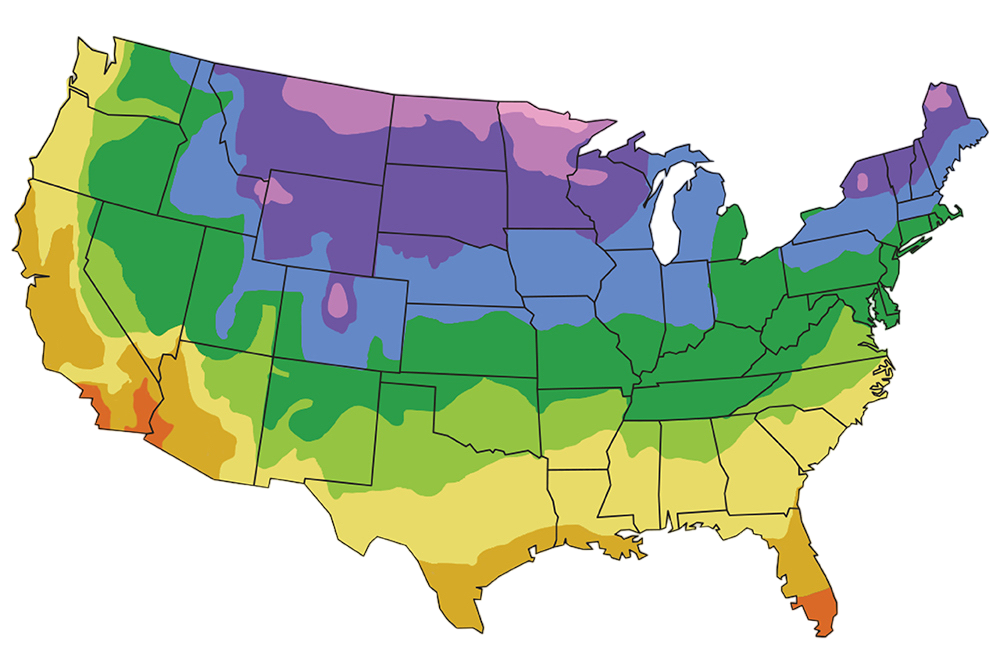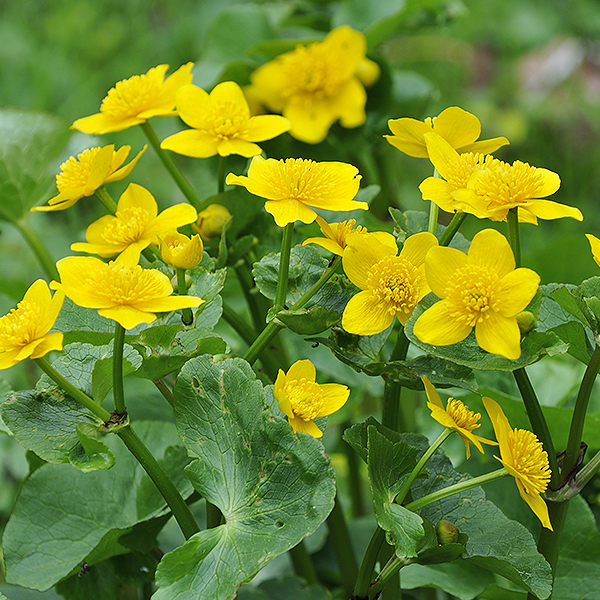
Marsh Marigold
Caltha palustris
92 reviews
Marsh Marigold
Caltha palustris
92 reviews
- Beautiful yellow flowers
- Tolerant of wet soil conditions
- Attracts butterflies and other pollinators
- Recommended by landscape designers for optimal fit in real yards
$47.00
$68.00
30% Off
- Ships to in 3-5 Days
- Free Shipping Over $150
- Plant Arrival Guarantee
- In Stock
- Free Plant Consult
$200 - Landscape-Approved: Every Plant We Sell Comes With Design Expertise Behind It
1 Gallon
We are sorry, product is currently out of stock due to seasonal availability. Please check the "Related plants available in your area" section below
Not just beautiful - intentionally selected by ShrubHub's 3D landscape design team to fit real-world spaces and maximize yard potential.
Why Marsh Marigold?
Marsh Marigold (Caltha palustris) is a widespread wetland plant found throughout North America, Europe, and Asia. It is commonly found in saturated soils near streams, ditches, and other wetland habitats. Marsh Marigold has bright yellow, buttercup-like flowers that bloom in early spring and can remain on the plant for several weeks. It is an important source of nectar for early season pollinators, and also serves as a food source for grazing livestock and wildlife.
Sunlight
Marsh marigolds (Caltha palustris) thrive in full to partial sunlight. They prefer moist soil and are commonly found growing along the edges of streams, ponds, and wetlands.
Watering
Marsh Marigold requires consistently moist soil to thrive. It prefers growing in wet or boggy conditions, such as near ponds or streams. Regular watering is essential to keep the soil moist but not waterlogged, allowing the plant to flourish.
Fertilizing
Marsh Marigolds prefer rich, moist soil, so a balanced fertilizer with equal nitrogen (N), phosphorus (P), and potassium (K) ratios, or a slow-release fertilizer, can be used.
Transform your garden into a vibrant and luxurious wetland oasis with the enchanting Marsh Marigold. This native perennial is like the conductor of your very own waterlogged symphony, making it the perfect choice for areas that boast consistently moist soil. Whether you're by a pondside, nestled within the embrace of a water garden, or decorating low-lying pockets of your landscape, this plant is your go-to maestro.
The Marsh Marigold steps onto the scene as a true herald of spring, unfurling its brilliant yellow, buttercup-like flowers in early to mid-spring. These cheerful blossoms not only breathe life into your garden with their vibrant hue but also serve as an essential nectar buffet for early-riser pollinators like bees and butterflies. Think of it as your garden's breakfast cafe, buzzing with activity.
But it's not just about the blooms; this perennial brings more to the table. Its striking green foliage forms attractive mounds of glossy, heart-shaped leaves, creating a visual spectacle that rivals the best of botanical artistry. With its adaptability to various moisture levels and its resilience to pests, it's a hassle-free addition to your garden that doesn't demand the spotlight but still steals the show.
Welcome the beauty of the wetlands into your landscape with the Marsh Marigold. Its vibrant blossoms and lush foliage will orchestrate a serene and inviting atmosphere in your garden, akin to a harmonious wetland symphony. As a bonus, it's like a backstage pass for local wildlife, ensuring your garden remains a bustling hub of life and activity.
Plant Information:
| Botanical Name: | Caltha palustris |
| USDA Zones: | 3 - 7 |
| Water: | High |
| Exposure: | Full Sun |
| Soil Needs: | Well Drained |
| Mature Height: | 12 - 18 inches |
| Mature Spread: | 12 - 18 inches |
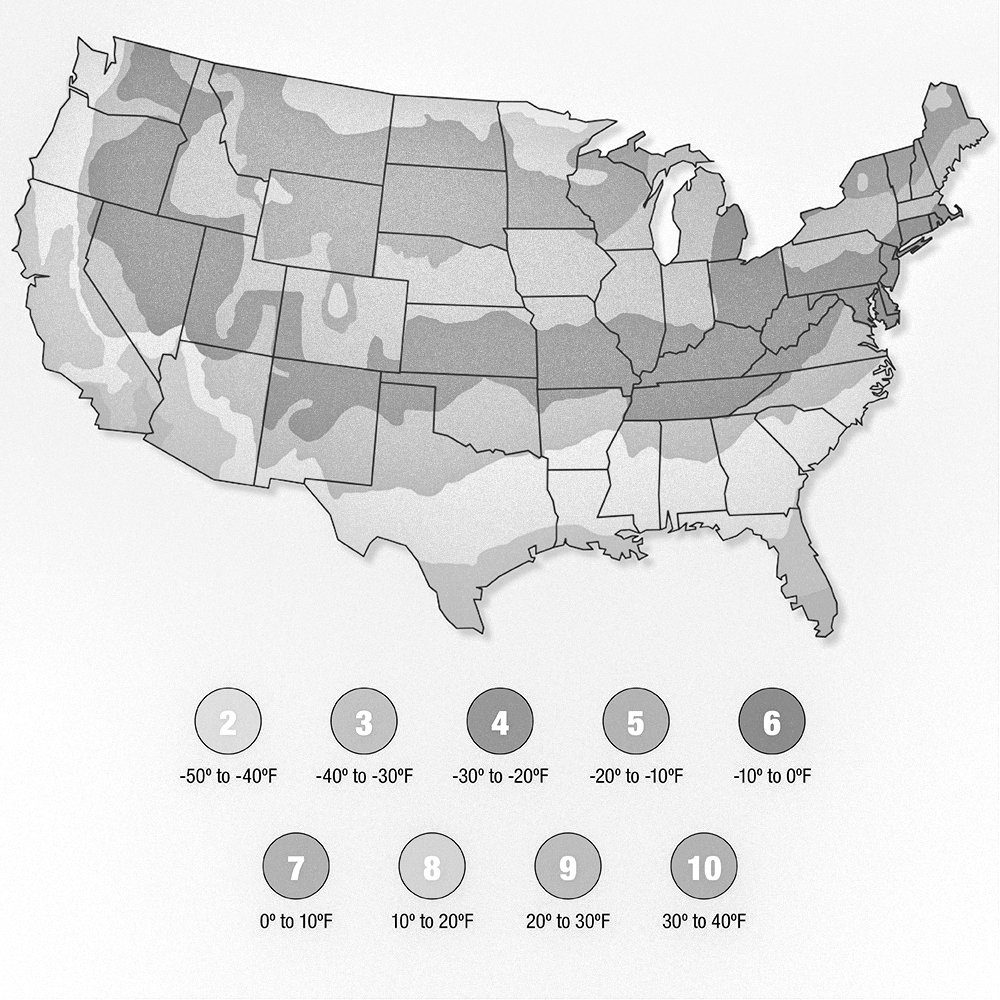


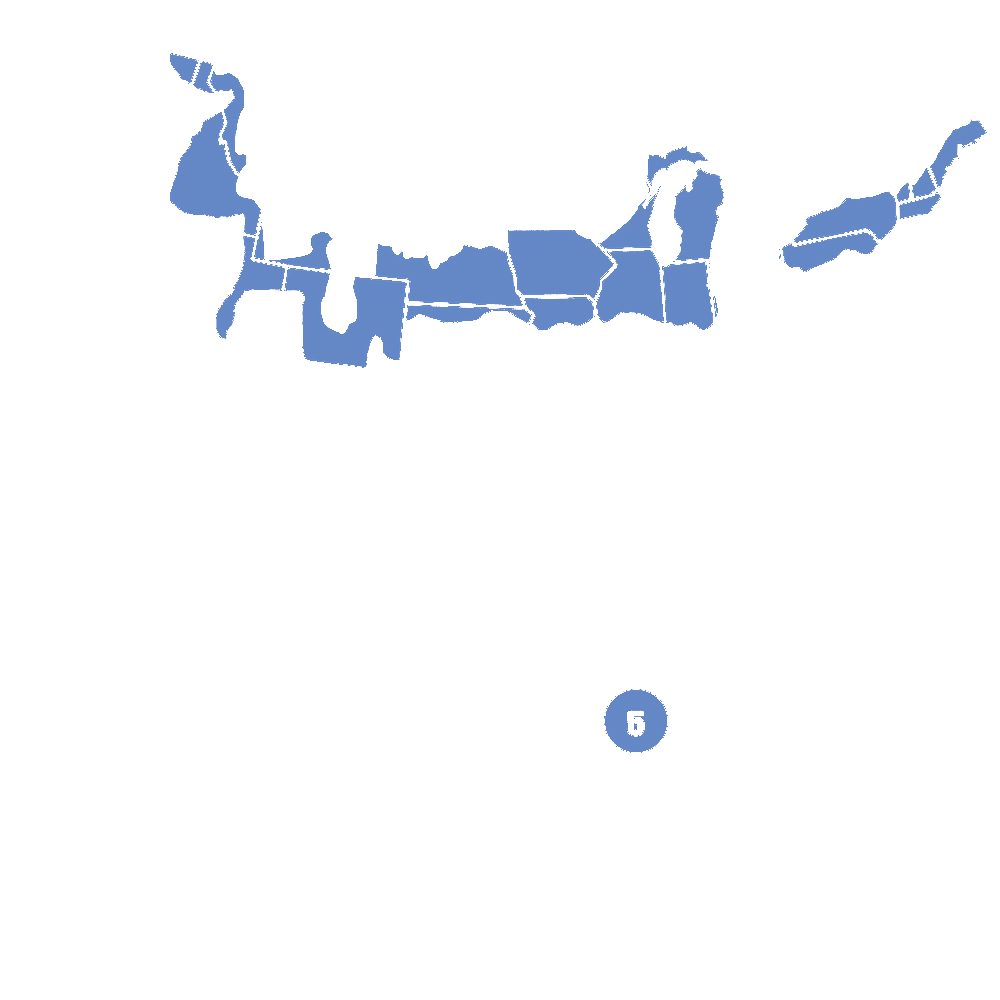
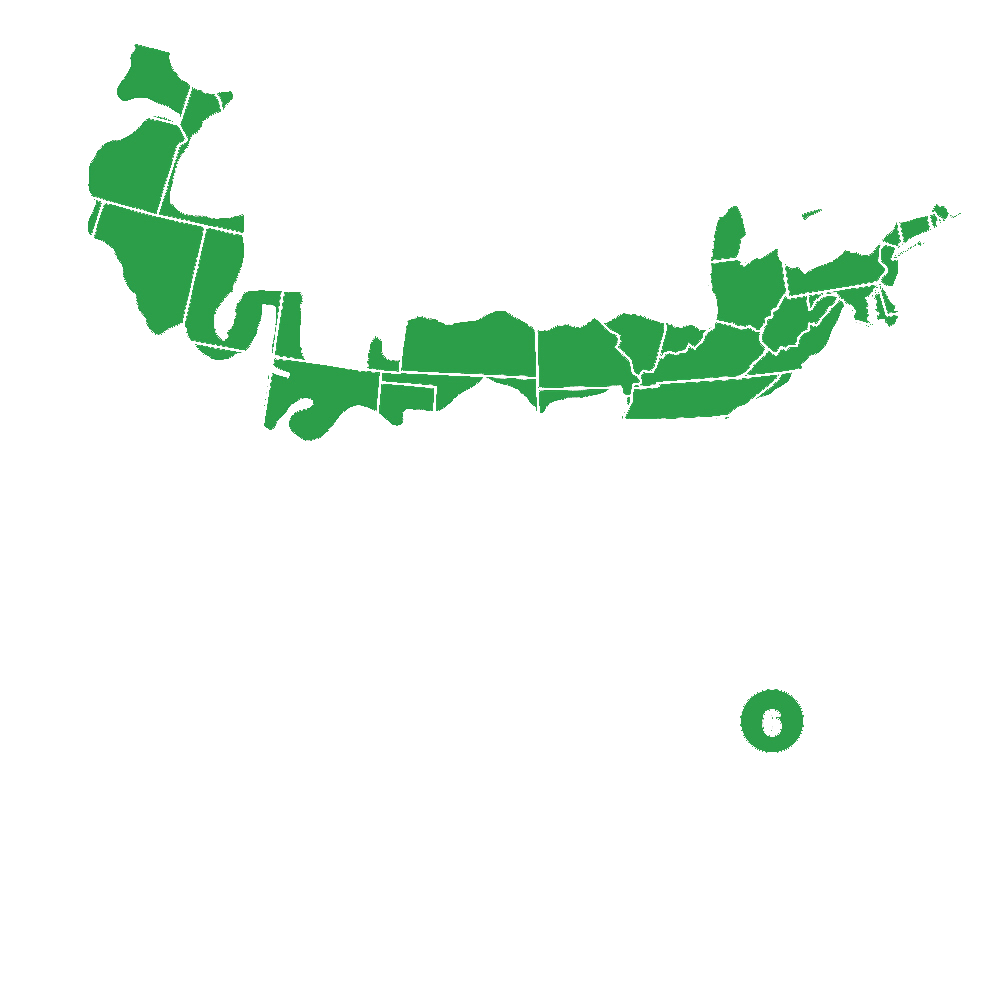

Pollination Info
Pollination Info for Marsh Marigold (Caltha palustris)
Marsh Marigold is an early blooming perennial plant with bright yellow flowers that appear in early spring. The flowers are pollinated by a variety of insects, including bees, flies, and beetles. The shape and location of the flowers make them accessible to these pollinators.
Marsh Marigold has both male and female reproductive organs and is capable of self-fertilization, but cross-pollination through insect visitation increases genetic diversity and enhances the overall health of the population.
The flowers produce nectar, which serves as a reward for visiting insects. The nectar contains sugars and amino acids that provide energy for the insects, while the pollen contains protein, fats, and vitamins that are essential for their growth and development.
After pollination, Marsh Marigold produces seeds that are dispersed by wind or water. The seeds are enclosed in small capsules that burst open when ripe, scattering the seeds in the surrounding area.
Overall, Marsh Marigold is an important plant for pollinators and provides essential resources for their survival and reproduction.
FAQ
Marsh Marigold (Caltha palustris) - FAQ
What is Marsh Marigold?
Marsh Marigold (Caltha palustris) is a perennial plant that grows in aquatic or wetland environments. It is also known as kingcup, cowslip, and marsh marigold.
What does Marsh Marigold look like?
Marsh Marigold has bright yellow, glossy, cup-shaped flowers that bloom in early spring. Its leaves are large and shiny and form a basal rosette.
Where can I find Marsh Marigold?
Marsh Marigold grows in wetlands, marshes, bogs, and along streambanks. It is native to Europe, Asia, and North America.
How do I propagate Marsh Marigold?
You can propagate Marsh Marigold through division or by collecting seeds. Divide the plant in early spring before it starts to bloom or collect the seeds in late summer or early fall.
What are the benefits of Marsh Marigold?
Marsh Marigold can be used as a natural remedy for various ailments, including skin irritations, coughs, and digestive issues. It is also a great plant for wetland restoration and can help improve water quality.
How do I care for Marsh Marigold?
Marsh Marigold prefers full sun to partial shade and moist soil. It can tolerate standing water but does not do well in drought. It is a low-maintenance plant and does not require fertilization or pruning.
Is Marsh Marigold poisonous?
Marsh Marigold is toxic if ingested and can cause vomiting, diarrhea, and skin irritation in some individuals. It is not recommended for consumption.
Planting & Care
Planting Marsh Marigold (Caltha palustris)
Marsh Marigold is a perennial plant that grows in wetlands, swamps, bogs, and along streams and ponds. It prefers full to partial sun and moist to wet soil, but can also tolerate some dryness in the soil. Here are some steps to follow when planting Marsh Marigold:
- Choose a location with moist soil and partial to full sun.
- Prepare the soil by removing any weeds or debris, and adding compost or well-rotted manure if needed.
- Plant Marsh Marigold in the soil so that the crown (where the roots meet the stem) is level with the soil surface.
- Water the plant thoroughly after planting.
Caring for Marsh Marigold
Marsh Marigold is a low-maintenance plant that requires little care. However, here are some tips to keep it healthy:
- Water regularly to keep the soil moist, but not waterlogged.
- Apply a layer of mulch around the base of the plant to help retain moisture and control weeds. Avoid piling the mulch directly on the stem, as this can cause rot.
- Deadhead (remove) faded blooms to encourage more flowers to bloom and to prevent the plant from self-seeding too aggressively.
- Divide the plant every 3-4 years in the spring to prevent it from becoming overcrowded. This will also promote healthier growth and more blooms.
Marsh Marigold is generally resistant to pests and diseases, but can be affected by leaf spot or crown rot if the soil is too wet or the plant is overcrowded.
Check Out These Verified Customer Reviews:
Customer Reviews
4.7 out of 5 based on 92 reviews
Thank you! Your review has been submitted.
High quality marsh marigold, very happy with my purchase.
Beautiful yellow color, looks great in my garden.
Fast shipping, received my order in just a few days.
Item has been added to your cart.

